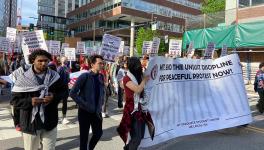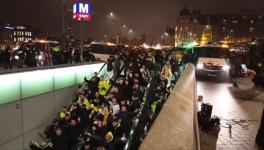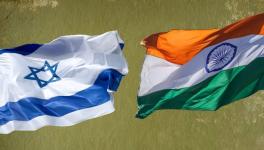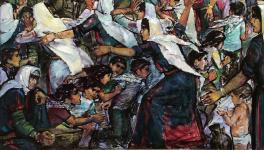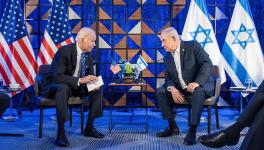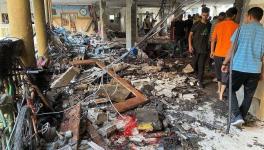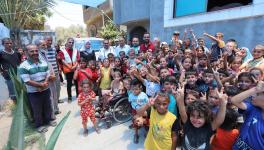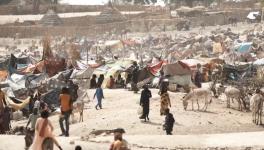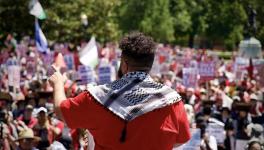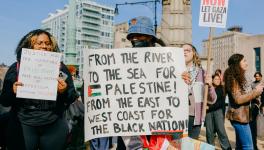Violence and Humanitarian Crisis Intensify in Colombia
The situation of violence in Colombia has led to the force displacements of around 15,000 people in different parts of the country. Photo: CONPAZCOL/Twitter
The paramilitary violence and the humanitarian crisis it causes deepen in Colombia. The massacres, the assassination of social leaders, the genocide of former combatants of the Revolutionary Armed Forces of Colombia (FARC) guerilla group continue at a worrisome rate in the country. Almost everyday, at least one violent incident is reported in the country.
According to the Institute of Development and Peace Studies (INDEPAZ), this year, as of April 6, 43 social leaders and 14 ex-combatants of the FARC have been assassinated by illegal armed groups and drug trafficking groups. Additionally, 91 people have been killed in 25 massacres perpetrated in the first 96 days of this year.
Furthermore, in a recent report, the INDEPAZ indicated a “disastrous” increase in mass forced displacements due to the violence this year. The organization reported that about 15,000 people from different regions of the country had been forced to abandon their homes in 65 mass displacement events in the first three months of 2021.
Camilo González, the director of INDEPAZ, stressed that if the displacements continue at this rate, the country could register more than 150 displacement events by the end of the year with more than 60,000 displaced people.
“It would be a disaster because we would be returning to the figures that were there before the Peace Accords, when we used to register about 155 such events a year. The situation is very critical. If we continue like this, this year, the displacement will skyrocket,” González told W Radio.
Although the killings take place in all departments of the country, Antioquia, Nariño, Valle de Cauca, Cauca and Norte de Santander departments are the most affected.
The situation of violence, which was supposed to improve after the signing of peace agreements between the former national government and the FARC in November 2016, has only worsened after their disarmament. There has been a significant expansion of paramilitary and drug trafficking groups in the areas where the FARC had control previously. The conflicts between armed groups to define control over land for drug trafficking and illegal gold mining activities is forcing the people to move away from their homes.
The members of various armed groups operating in the country specifically target environmentalists, land defenders, human rights activists and leaders of Afro-descendent and Indigenous communities, who work to defend land and natural resources, and protest against the cultivation of illicit crops and illegal mining activities in their territories.
According to the INDEPAZ, 1,157 environmentalists, human rights defenders, community, peasant and social leaders, and 263 former combatants of the FARC, who are in the reincorporation process, have been assassinated since the signing of peace agreements.
Various Afro-descendant Indigenous, human rights and social activists and organizations as well as opposition political leaders and parties have condemned the far-right government of president Ivan Duque for its reluctance to implement measures to stop these acts of violence and dismantle the illegal armed groups. Many leaders have also denounced that the killings are driven by economic interests as well as political agendas. They have rejected Duque’s policies of stigmatization and criminalization of those who take part in social protests, because it normalizes violence against them.
Last month, the Permanent Peoples’ Tribunal (TPP) came to Colombia to analyze grave human rights violations against people, organized processes, social and political organizations and to uncover role of the Colombian state in the ongoing genocide. During its three-day visit in the country, the international people’s tribunal held public hearings on more than 50 cases.
Courtesy: Peoples Dispatch
Get the latest reports & analysis with people's perspective on Protests, movements & deep analytical videos, discussions of the current affairs in your Telegram app. Subscribe to NewsClick's Telegram channel & get Real-Time updates on stories, as they get published on our website.









